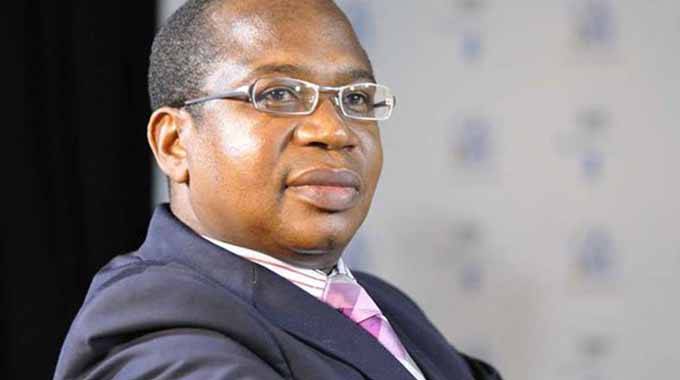Editorial Comment: Zimdollar will boost competitiveness

The rate at which the black market value of the RTGS dollar (now Zimbabwean Dollar) has been fast sliding against the US dollar was no longer sustainable and the move by Government to abolish the multi-currency system will avert a potentially disastrous situation where the country would have been plunged into fully-fledged re-dollarisation.
The market has been trying to force re-dollarisation at a time the economy did not have enough United States dollars to support it.
Besides, it has been established that those putting pressure on re-dollarisation were not common Zimbabwean workers, who have been earning RTGS dollars, but some unscrupulous and unethical traders who have been charging in US dollars so that customers assist them mobilise the money from the black market.
Indeed, products in US dollar terms would be slightly cheaper than in RTGS, forcing people to hunt for hard currency on the unofficial market, forcing the rate to spike on daily or hourly basis.
These financial misdemeanours among others, could have caused the annual inflation to hit 97,8 percent in May on the back of the continuing increase in prices, which continued to be indexed to the parallel market exchange rates, especially the US dollar and the South African rand.
Cognisant of these developments among others that have seen workers, among them State employees demanding salaries and allowances in US dollars as they were literally earning less than US$30 if black market rates are used, authorities had no choice, but to arrest this rot.
This is the rationale behind Government’s decision to outlaw the multi-currency system through Statutory Instrument 142 of 2010, gazetted yesterday, which makes the local currency, Zimbabwe Dollar, the only legal tender in the country.
Finance and Economic Development Minister Mthuli Ncube said the latest abolishment of the multi-currency was an attempt by Government to resolve the problem where prices are indicated in US dollars yet the majority of people earn local currency.
People must understand that Government has not outlawed possession of foreign currency in Zimbabwe.
Said Minister Ncube: “It means that anyone who wants to buy goods from the shop or pay for services within . . . Zimbabwe ought to go to a bank, bureau de change or some other institutions to change their foreign currency into domestic currency and spend that whichever way they wish to spend. That’s what countries normally do, that’s what all countries do.”
So there is nothing out of economic textbooks that the Government has done, but just to go back to basics since there is no country that has successfully dollarised and prospered in the world, save for Ecuador and Pamana, but are still struggling.
We therefore welcome these latest developments in our economy.
However, Government has to be vigilant because on its midst and among businesspeople, there are people who have been enjoying the benefits of price distortions and arbitrage and these shall continue to create trouble and creating structures to circumvent the new systems and continue to clandestinely charge in foreign currency.
There is no doubt this economy is highly informal, maybe half formal and half informal, meaning there is a segment of the economy insulated from Government policies, yet it poisons the formal economy.
These are areas that require strong control structures given that ordinary Zimbabweans with access to foreign currency who also want to enjoy services of these businesses that appear to be relatively cheap, will continue to trade in foreign currency.
There are hundreds if not billions of US dollars circulating in the informal market that we are not sure of how the new regulations are going to control their use.
Even on the formal market, as of yesterday evening, reports abound that some players in the pharmaceutical sector and some retail shops were removing products from shelves, obviously protesting the latest move.
It is our hope that when such developments start happening, all stakeholders have to go to the negotiating table and avoid confrontation because we all know what will happen, disappearing of products is not good for the economy and the common good.
We know there are some hard nuts and these, for the common good, surely no one will shade a tear if their businesses are crushed because Zimbabwe is for everyone who also have the right to access to services no matter that they do not have access to foreign currency.
When such major policy enunciation are made, the truth is some people who refuse to go by the tide will be swept away and their demise maybe collateral damage and the country has to move on.
Zimbabwe is under sanctions and has been struggling to attract reasonable lines of credit and foreign direct investment, which are major sources of liquidity and surely those who stand in the way to redress these challenges must be shown the right way.
Not stopping re-dollarisation was going to be disastrous and indeed the new move will go a long way in restoring most critical functions of the central bank, which will empower it to defend the value of local currency.
Like what the National Business Council of Zimbabwe president Langton Mabhanga, said Zimbabwe needed its own currency for local transactions and limit the usage of foreign currency for importing.
“Everywhere in the world, people do not use foreign currency to transact locally.
“We had developed a culture where we would criss-cross currencies and this does not build competitiveness because all that foreign currency gets siphoned out of the country.
“Having our own currency is the way to go. What this means is we will have to run a very tight foreign currency exchange platform that is free of leakages to ensure companies access foreign currency for their imports and other foreign obligations,” he said.










Comments